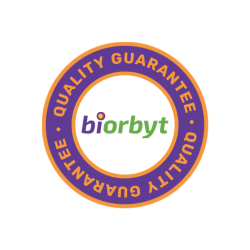You have no items in your shopping cart.
Cart summary

XCL2 Protein, Human, Recombinant (His)
Catalog Number: orb1956966
| Catalog Number | orb1956966 |
|---|---|
| Category | Proteins |
| Description | XCL2 is a small cytokine belonging to the XC chemokine family. Chemokines are a group of cytokines. Members of this group of so-called C-Chemokines belong to the SCY family of cytokines and are designated XCL (L for ligand) followed by a number. XCL2 is the new designation of SCM-1-beta. XCL2 is highly related to another chemokine called XCL1. XCL2 gene is located on chromosome 1 in humans. XCL2 is predominantly expressed in activated T cells, but can also be found at low levels in unstimulated cells. XCL2 induces chemotaxis of cells expressing the chemokine receptor XCR1. XCL2 gene has been proposed to participate in pathways (Chemokine signaling pathway, Cytokine-cytokine receptor interaction) and processes (blood circulation, signal transduction, chemotaxis, immune response). XCL2 are expected to have molecular function (chemokine activity) and to localize in various compartments (extracellular space, extracellular region). A putative protein interactor has been described (XCR1). The spliced mRNA putatively encodes a good protein, containing small cytokines (intecrine / chemokine), interleukin-8 like domain; the complete protein appears to be secreted. |
| Tag | C-His |
| Purity | 98.00% |
| MW | 11.7 kDa (predicted); 18-20 kDa (reducing conditions) |
| UniProt ID | Q9UBD3 |
| Expression System | Baculovirus Insect Cells |
| Biological Origin | Human |
| Biological Activity | XCL2 is a small cytokine belonging to the XC chemokine family. Chemokines are a group of cytokines. Members of this group of so-called C-Chemokines belong to the SCY family of cytokines and are designated XCL (L for ligand) followed by a number. XCL2 is the new designation of SCM-1-beta. XCL2 is highly related to another chemokine called XCL1. XCL2 gene is located on chromosome 1 in humans. XCL2 is predominantly expressed in activated T cells, but can also be found at low levels in unstimulated cells. XCL2 induces chemotaxis of cells expressing the chemokine receptor XCR1. XCL2 gene has been proposed to participate in pathways (Chemokine signaling pathway, Cytokine-cytokine receptor interaction) and processes (blood circulation, signal transduction, chemotaxis, immune response). XCL2 are expected to have molecular function (chemokine activity) and to localize in various compartments (extracellular space, extracellular region). A putative protein interactor has been described (XCR1). The spliced mRNA putatively encodes a good protein, containing small cytokines (intecrine / chemokine), interleukin-8 like domain; the complete protein appears to be secreted. |
| Expression Region | A DNA sequence encoding the human XCL2 (Q9UBD3) (Met 1-Gly 114) was fused with a polyhistidine tag at the C-terminus. Predicted N terminal: Val 22 |
| Storage | -20°C |
| Note | For research use only |
| Application notes | A Certificate of Analysis (CoA) containing reconstitution instructions is included with the products. Please refer to the CoA for detailed information. |
| Expiration Date | 6 months from date of receipt. |
XCL1 Protein, Human, Recombinant (hFc & His) [orb1961346]
98.00%
54 KDa (reducing condition)
1 mg, 500 μg, 50 μg, 10 μg


